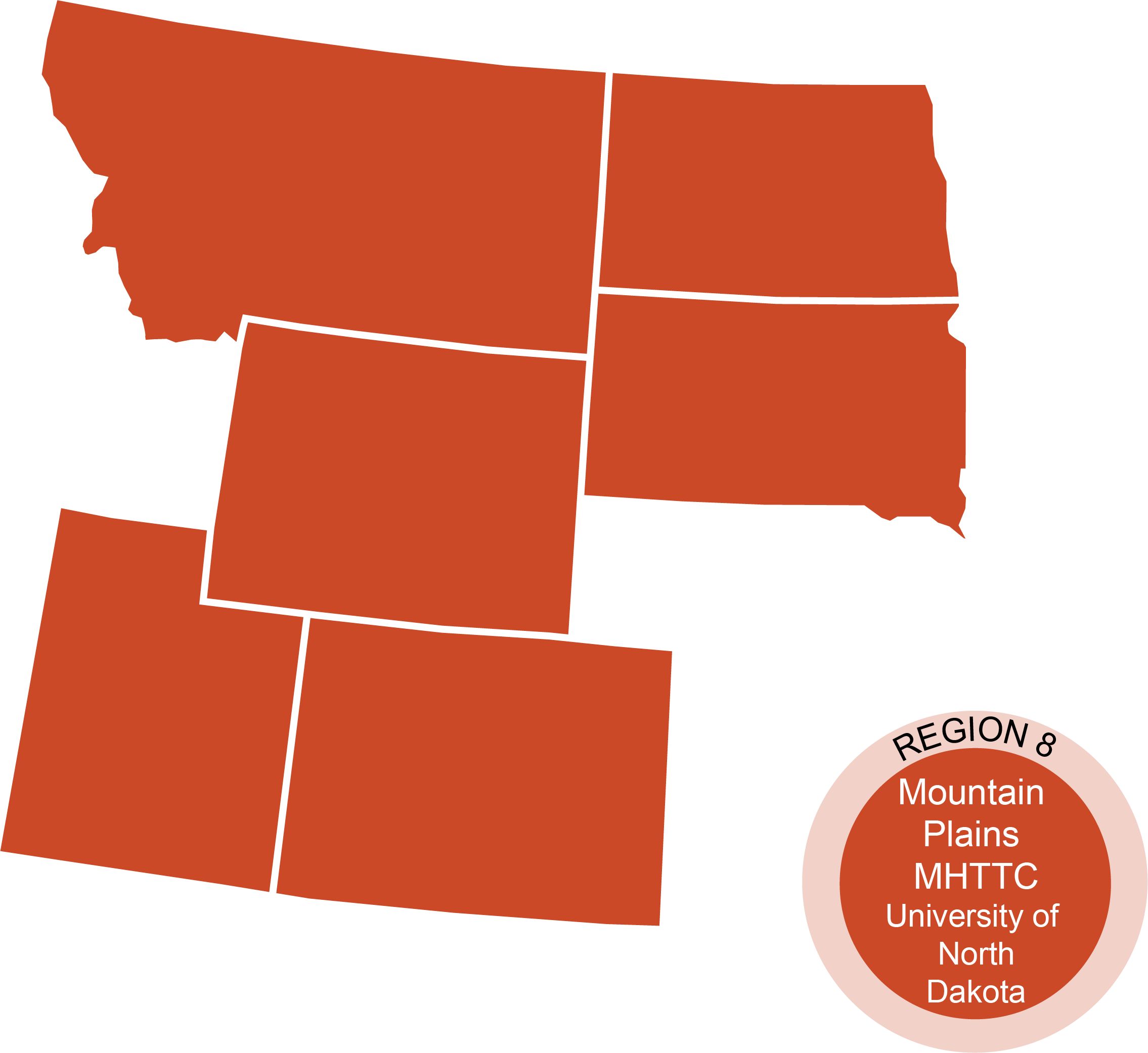Home > MIC Stories: Trauma Responsive Practices in Education Training of Trainers

MIC Stories (MHTTCs Implementing Change) feature technical assistance projects that had a significant impact on practice.
Based on findings from a Region 8 needs assessment, the Mountain Plains MHTTC identified the importance of implementing trauma-informed strategies in schools. With the challenges faced by rural communities in the region when addressing youth mental health and well-being (e.g., stigma, lack of available and affordable resources and accessibility of mental health services), the Mountain Plains MHTTC, in collaboration with Resilient Futures, conducted a training of trainers that provided tools and resources to appropriately and effectively implement trauma-informed practices in their communities and schools.
The Mountain Plains MHTTC aimed to address the implementation of trauma-informed evidence-based practices in schools and communities through training of trainer events in Region 8 with essential school personnel and community behavioral health providers.
The Mountain Plains MHTTC selected participants for the training based on experience level with trauma-informed practices and their ability to train other school-based professions in trauma-informed practices. The training took place in Rapid City, South Dakota and included 9 rural and tribal schools, and 14 community behavioral health programs. A total of 42 participants were present, including:

In April 2022, the Mountain Plains MHTTC provided a 3-day interactive in-person training of trainers facilitated by Resilient Futures with a focus on foundational trauma-informed knowledge based on the Healthy Environments and Response to Trauma in Schools (HEARTS), an evidence-informed framework. This training provided theories and strategies through the HEARTS core guiding principles of: Understanding Trauma and Stress; Cultural Humility and Equity (including an awareness of racial trauma and an emphasis on equity work); Compassion and Dependability; Resilience and Social Emotional Learning; and Empowerment and Collaboration.
In addition to the 3-day in-person training, virtual follow-ups were conducted one month and 3 months after the initial training.
One challenge the Mountain Plains continues to tackle throughout Region 8 is the identification of essential school personnel and community behavioral health providers to address youth’s identified mental health needs using trauma-informed best practices.
The Mountain Plains MHTTC disseminated a survey at the end of the three-day in-person training to compile participant feedback regarding satisfaction with the training. A 30-day follow up survey was also disseminated.
Of participants who completed the post-event survey:
Through this training series, the Mountain Plains MHTCC learned the importance of leveraging existing relationships in various rural and tribal communities located throughout Region 8 as a means of increasing the implementation of trauma-informed practices in schools. Given the challenges and lack of resources identified by trainers and training attendees, we also learned that such training series and collaborations are key in increasing awareness of evidence-based trauma informed practices in rural communities.
The training of trainers’ events, past and future, will increase the capacity of school districts and communities to implement trauma-informed evidence-based practices. Given the impact of historical and acute trauma on youth mental health and educational journeys, the Mountain Plains MHTTC will continue to prioritize activities to address trauma-informed evidence-based service provision for youth.

The primary focus of the Mountain Plains Mental Health Technology Transfer Center (MHTTC) is to provide training, resources, and technical assistance to individuals serving persons with mental health disorders. Particular attention is given to serving providers with limited access to service delivery systems to include a focus on rural and agricultural communities. The Mountain Plains MHTTC serves the states of Colorado, Montana, North Dakota, South Dakota, Utah, and Wyoming.